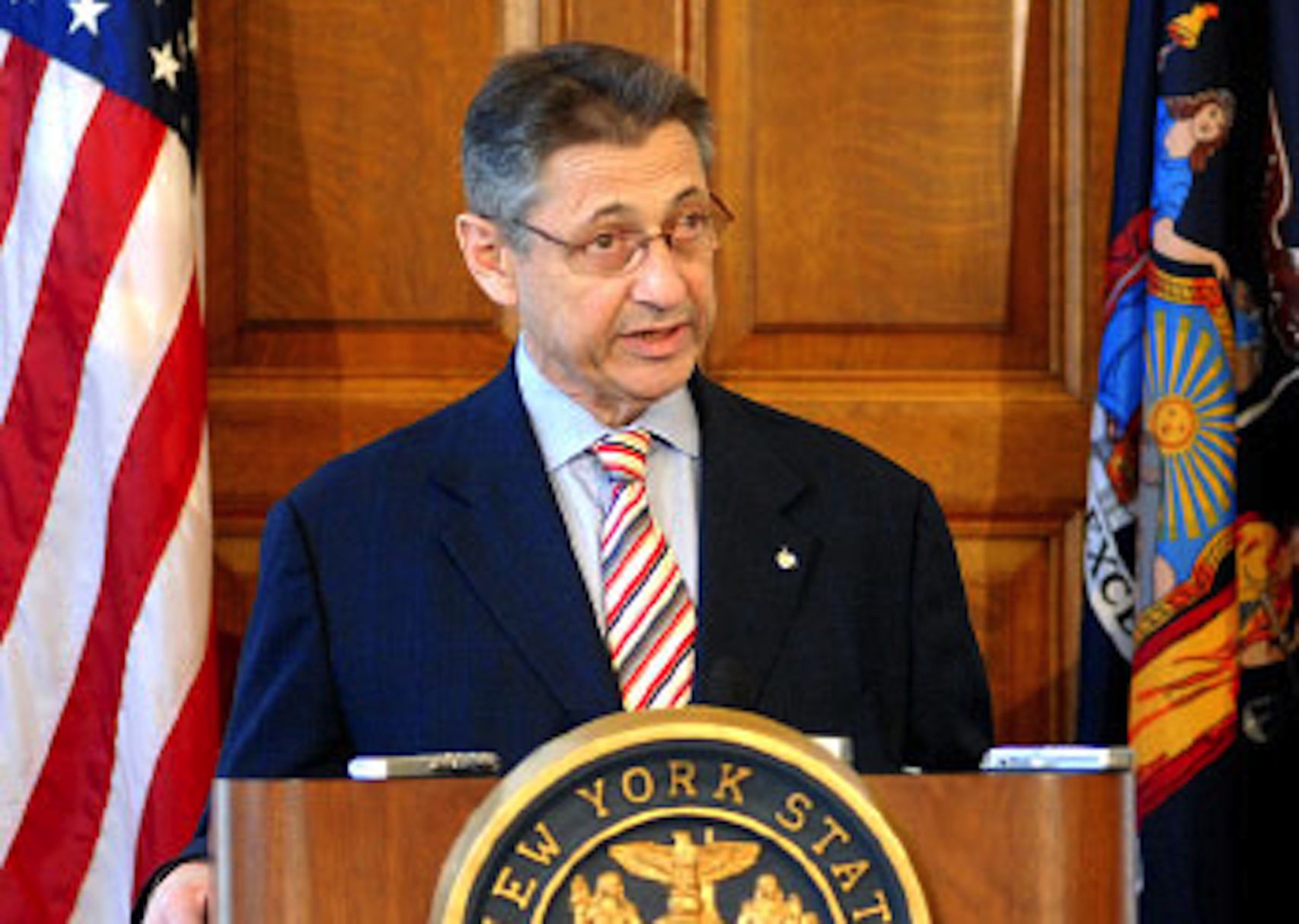A federal appeals court overturned the conviction of former state Assembly Speaker Sheldon Silver on Thursday, changing the course of one of the state’s most significant corruption cases.
A three-judge panel in the U.S. Second Circuit Court of Appeals ruled the Manhattan Democrat’s 2015 conviction was invalid under last year’s Supreme Court ruling in the case of former Virginia Gov. Bob McDonnell, which raised the legal standard for criminal bribery.
“We are grateful the court saw it our way and reversed the conviction on all counts,” Steven Molo and Joel Cohen, Silver’s Manhattan lawyers, said in a joint statement.
A jury convicted Silver, a longtime Albany power broker, of honest services fraud, extortion and money laundering for receiving money in exchange for official actions benefitting a New Hyde Park-based real estate firm, Glenwood Management, and a Manhattan physician, Dr. Robert Taub.
The appeals court opinion by Judge José A. Cabranes says the jury that convicted Silver did not get the right instructions in the context of the McDonnell case.
That 2016 ruling said actions exchanged for gifts or money must involve “a formal exercise of governmental power” to be considered criminal. Silver’s jury only considered whether he had acted “under the color” of his elected office.
“While the Government presented evidence of acts that remain ‘official’ under McDonnell, the jury may have convicted Silver for conduct that is not unlawful, and a properly instructed jury might have reached a different conclusion,” Cabranes wrote.
The appeals court, though, rejected Silver’s argument that there was not enough evidence to convict him. The trial court and federal prosecutors were not at fault in giving the instructions they did, which were “consistent with our precedent at the time,” Cabranes wrote.
Joon H. Kim, the acting U.S. attorney for the Southern District of New York, vowed to retry Silver. Preet Bharara, Kim’s predecessor who first brought the charges against Silver, said on Twitter that he expects Silver will be “re-convicted” under the new legal standard.
“Although it will be delayed, we do not expect justice to be denied,” Kim said in a statement.
The evidence was strong. The Supreme Court changed the law. I expect Sheldon Silver to be retried and re-convicted.
— Preet Bharara (@PreetBharara) July 13, 2017
At trial, prosecutors showed that Silver received nearly $4 million in legal fees for getting Glenwood Management and Taub to refer legal cases to law firms where Silver worked. In exchange, Silver helped his benefactors in an official capacity by flexing his influence over legislation and grants, among other actions.
Silver was sentenced to 12 years in prison and three years of supervised release.
The arrests of Silver, who held his Assembly seat for more than 40 years, and former state Senate Majority Leader Dean Skelos, a Rockville Centre Republican, caused a political shockwave across the state and led to the downfall of two of Albany’s most powerful leaders.
The ruling in Silver’s appeals raises questions about the future of the case against Skelos, who was convicted weeks after Silver alongside his son, Adam Skelos, on bribery, extortion and conspiracy charges.
In their appeal, lawyers for Skeloses similarly argue that the trial jury got bad instructions in the context of the McDonnell ruling, and that there was not enough evidence to convict them.
The pair were accused of using Dean’s political power to get more than $300,000 in payments for Adam from Glenwood Management, Roslyn malpractice insurance firm Physicians’ Reciprocal Insurers and Arizona-based environmental technology firm AbTech Industries.
AbTech got a $12 million Nassau County contract while Adam Skelos was working for the firm as a consultant. That revelation led to several reforms to the county’s contracting system and a push by Democrats for an inspector general to oversee the pacts.



